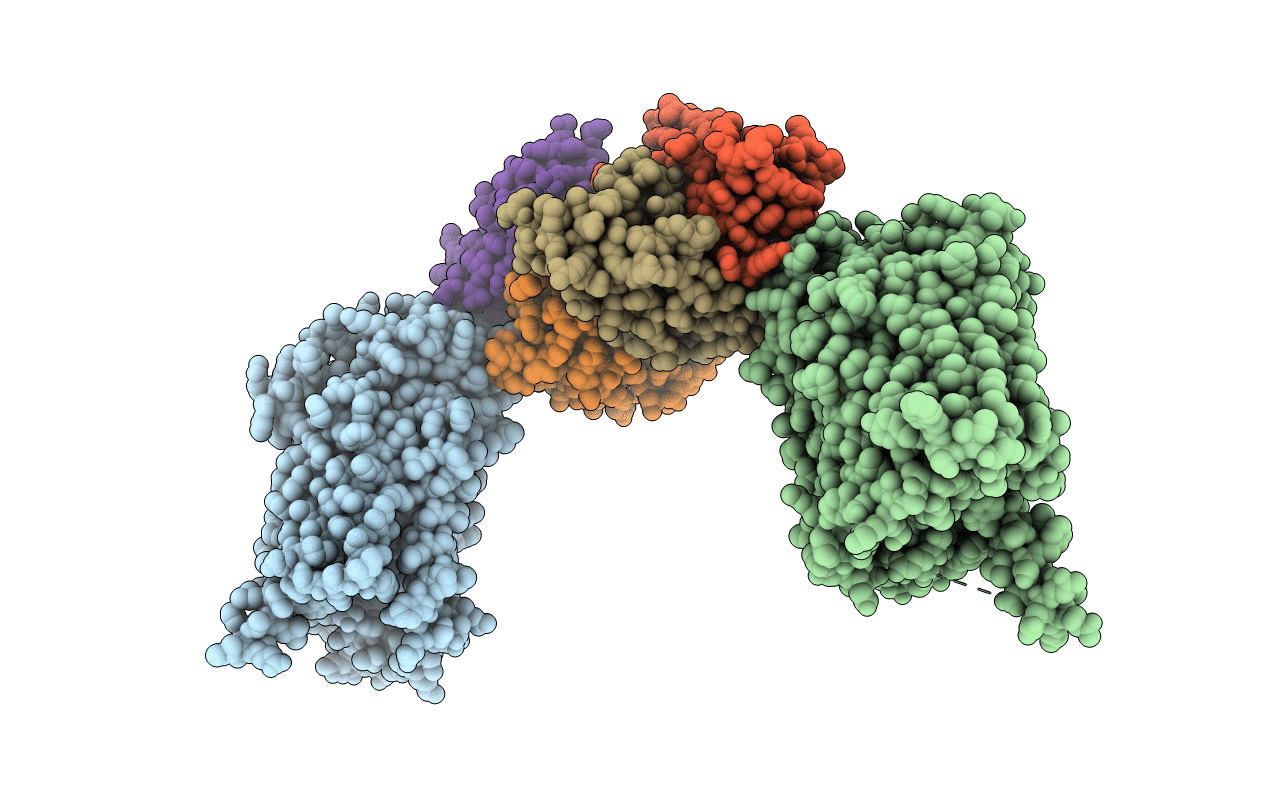
Deposition Date
2015-02-19
Release Date
2015-10-07
Last Version Date
2024-10-23
Entry Detail
PDB ID:
4YBQ
Keywords:
Title:
Rat GLUT5 with Fv in the outward-open form
Biological Source:
Source Organism(s):
Rattus norvegicus (Taxon ID: 10116)
Mus musculus (Taxon ID: 10090)
Mus musculus (Taxon ID: 10090)
Expression System(s):
Method Details:
Experimental Method:
Resolution:
3.27 Å
R-Value Free:
0.28
R-Value Work:
0.24
R-Value Observed:
0.24
Space Group:
P 1 21 1


